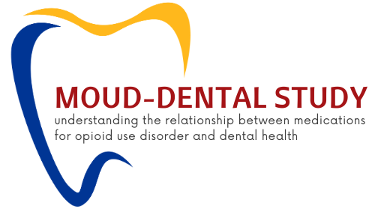
Section of Treatment, Research, and Education in Addiction Medicine
Research
STREAM seeks to transform the understanding and treatment of substance use disorders through inquiry that bridges disciplines, populations, and care settings. Projects within the section span the full continuum of substance use care from early prevention and screening to long-term recovery and harm reduction. Investigators are examining how health policies, clinical practices, and social determinants shape access to evidence-based treatments, as well as how stigma and inequities intersect with addiction care. Other studies focus on the development and evaluation of novel interventions, including digital health tools, behavioral therapies, and integrated models of care that link hospital, outpatient, and community settings. At Pitt, we have access to multiple national databases, including VA Clinical Data Warehouse, Optum, National Survey on Drug Use and Health, and IQVIA.
A cornerstone of this research portfolio is the NIDA Clinical Trials Network (CTN) Appalachian Node, co-directed by faculty at the University of Pittsburgh. This initiative unites researchers and clinicians across multiple institutions, including West Virginia University, Penn State College of Medicine, and the University of Maryland-Baltimore, to conduct community-informed, multi-site clinical trials addressing substance use disorders in both rural and urban settings. The Node’s partnerships extend to the PaTH Research Network, linking data from nine academic health systems to enable large-scale analyses of treatment effectiveness and health disparities.
The Pitt Center for Research on Health Care (CRHC) supports Bridging Connections in Addiction Research (BCAR), a multidisciplinary addiction research community at the University of Pittsburgh. BCAR promotes addiction research by providing networking and collaborative opportunities among faculty and trainees at Pitt. BCAR advances collaboration through regular meetings, where attendees present current research and have opportunities for structured and unstructured networking.

STREAM at AMERSA 2025 Annual National Conference
Research Portfolio
STREAM’s research portfolio is extensive and highlighted with the current, ongoing projects below.
Title: Appalachian Node of the NIDA Clinical Trials Network
Funding Source: NIH NIDA UG1DA049436 (2019-2032)
MPI: Jane Liebschutz, MD, MPH [Contact], and Erin Winstanley, PhD
Brief Description: The major goal of this Clinical Trials Network (CTN) is to conduct clinical studies that will lead to improved treatment and outcomes for patients with substance use disorders at the community level.
Project Website: https://www.ctn.pitt.edu/
Title: Lowering Cardiovascular Disease Among People with Opioid Use Disorder
Funding Source: NIH NIDA K23DA062822 (2025-2030)
PI: Bryant Shuey MD, MPH
Brief Description: This award’s objective is to determine the extent to which cardiovascular disease (CVD) affects people with opioid use disorder (OUD) and how patients, providers, and payers can prevent CVD. This project will utilize 2016-2024 Transformed Medicaid Statistical Information System Analytic Files data from 50 states to examine the relationship between CVD and OUD and to assess the impact of Medicaid Health Homes on CVD risk reduction among people with OUD.
Title: UPMC Adolescent and Young Adult Addiction Medicine Fellowship
Funding Source: HRSA T25HP54974 (2025-2030)
PI: Margaret Shang, MD, MS
Brief Description: Funded by the Health Resources and Services Administration (HRSA), the Adolescent and Young Adult Addiction Medicine Fellowship (AYA-AMF) Track offers comprehensive, specialized training for physicians committed to improving addiction care for adolescents and young adults, especially in medically underserved and rural communities.
Website: https://dom.pitt.edu/dgim/fellowship/addiction-medicine/aya-amf/
Title: Using Human Centered Design to Tailor a Web-based Behavioral Treatment for Chronic Pain and Opioid Use Disorder
Funding Source: NIH NIDA K23DA063868 (2025-2029)
PI: Karlyn Edwards, PhD
Brief Description: Few interventions exist that can address chronic pain and opioid use disorder (OUD), two conditions that commonly co-occur and are mutually reinforcing. The current NIDA K23 proposal aims to develop and test a novel, patient-centered, web-based behavioral intervention tailored to people with chronic pain and OUD to improve pain and opioid use outcomes.
Title: HEALing Measurement Center: Enhancing Opioid Use Disorder Recovery through Measurement Based Care
Funding Source: NIH NIDA RM1DA059395 (2024-2029)
MPI: Renee Cloutier, PhD [Contact]
Brief Description: This multisite, multiple PI grant will enhance the measurement, quality, and equity of care delivered in 20 community opioid treatment programs (OTPs) by co-designing and implementing measurement-based care tools and systems as well as novel implementation strategies (e.g., paperwork reduction).
Title: Building an interprofessional and diverse workforce in substance use and pain
Funding Source: NIH NIDA T32DA057926 (2024-2029)
MPI: Erin Winstanley, PhD (Merlin [Contact])
Brief Description: The mission of this NIDA T32 training program entitled BUILD-UP is to provide personalized and rigorous training to postdoctoral fellows who plan careers at the intersection of substance use and chronic pain. BUILD-UP’s mission includes prioritizing recruitment of postdoctoral fellows across the spectrum of health professions, including people who are interested in developing novel interventions to improve service uptake in communities with limited access to integrated services.
Title: Localize Opioid Use Disorder (LOUD) response to increase medication access
Funding Source: NIH NIDA R37DA060183 (2024-2028)
MPI: Paul Joudrey, MD, MPH [Contact]
Brief Description: Leveraging data science to better localize and monitor responses for OUD treatment by developing a replicable and scalable Small Area Multidimensional suite of measures of medication access will inform organizational-, community-, and system-level interventions to improve receipt of services across the opioid treatment cascade.

Title: Prescribe to Prevent HIV
Funding Source: NIH NIDA K23DA063654 (2025-2028)
PI: Raagini Jawa, MD, MPH
Brief Description: The Prescribe to Prevent HIV (P2PH) trial is a participatory study to co-create and pilot test a tailored multi-level implementation strategy bundle to increase the prescribing of sterile injection equipment and PrEP in four outpatient clinics, ultimately reducing the risk of HIV and SIRI among PWID.
Project website: dom.pitt.edu/dgim/sections/stream/hrrc/
Title: SCC-IRG Track 1: A New AI-driven Paradigm to Promote Community Resilience for Teenagers and Young Adults in Preventing Opioid Misuse and Addiction
Funding: NSF (2024-2028)
MPI: Erin Winstanley, PhD (Ye [Contact])
Brief Description: The goal of this project is to design and develop a new AI-driven paradigm to facilitate personalized messages tailored to teens and young adults communities’ characteristics and circumstances to promote their resilience against opioid misuse and addiction, and thus help enhance national public health, safety, and welfare.

Title: Comparative Risk of Oral Complications Associated with Medications for Opioid Use Disorder: A Mixed-Methods Approach
Funding Source: NIH NIDCR R01DE033322 (2023-2028)
MPI: Payel Jhoom Roy, MD, MSc [Contact]
Brief Description: We will conduct a mixed-methods and intervention-based study to advance our understanding of the directionality of medications for opioid use disorder (MOUD) and oral complications.
Title: Toward measures and behavioral trials for effective online AUD recovery support
Funding Source: NIH NIAAA K01AA030809 (2023-2028)
PI: Jason Colditz, PhD, MEd
Brief Description: Online AUD Recovery Support (OARS) forums are growing in popularity and offer convenient access to real-time social support, which may improve well-being and support transitions to in-person support, but effectiveness of OARS on improving AUD outcomes has not been studied in rigorous clinical trials. To enable rigorous testing of OARS participation—ultimately leading toward evidence-based guidelines for their use in AUD—I will develop necessary measures of OARS behavior and conduct a pilot randomized clinical trial to assess the feasibility of a behavioral intervention for OARS participation.
Title: PeRsOnlized MethadOne TrEatment (PROMOTE) by implementing shared decision making
Funding Source: NIH NIDA R61DA063659 (2025-2027)
MPI: Paul Joudrey, MD, MPH [Contact]
Brief Description: There is a need for scalable and sustainable interventions to improve methadone treatment by establishing greater person-centered care within opioid treatment programs. An evaluation of shared decision-making implementation within opioid treatment programs can generate urgently needed rigorous implementation data while adding to our understanding of the impact of shared decision making on methadone treatment retention, patient quality of life, and clinician compassion fatigue.

Title: Effects of Xylazine and other Illicitly Manufactured Fentanyl Adulterant Exposures in Pregnancy on Maternal, Perinatal, and Infant Outcomes (EXAMIN)
Funding Source: NIH NIDA R21DA062129 (2025-2027)
PI: Ilana Hull, MD, MSc
Brief Description: This research project will explore the effects of xylazine exposure on maternal, perinatal, and neonatal outcomes and identify opportunities to employ related risk mitigation strategies.

Title: Tailored Retention and Engagement for Effective integrated Treatment of OUD and Pain (TREETOP)
Funding: NIH NIDA RM1DA055311 (2021-2026)
MPI: Erin Winstanley, PhD, and Megan Hamm, PhD (Merlin [Contact])
Brief Description: Our overall goal is to improve treatment for comorbid chronic pain and opioid misuse/opioid use disorder (OUD) across the OUD treatment cascade including patients residing in urban and rural communities.
Website: https://www.treetop.pitt.edu/
Title: University of Pittsburgh Collaboration in Addiction Training Scholars (PittCATS) Program
Funding: NIH NIDA K12DA050607 (2020-2026)
PI: Jane Liebschutz, MD, MPH
Brief Description: The University of Pittsburgh Collaboration in Addiction Training Scholars (PittCATS) Program will support promising junior faculty for 3-5 years, provide them with comprehensive mentored career development experiences, and launch them on productive careers as independent investigators and leaders in substance use and SUD research in general medical settings.
